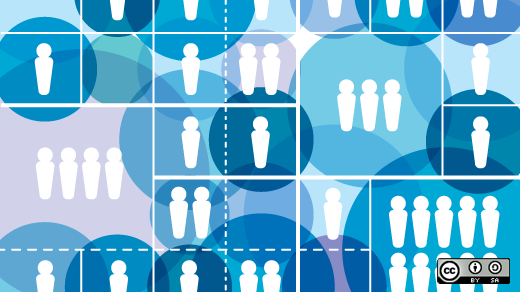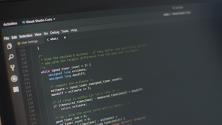Deb Nicholson gave a fascinating talk about privacy and surveillance at this year's Texas Linux Fest. I have to admit that I was so into her stories that I found myself forgetting to write down what she was saying!
Privacy is a construct and a relatively recent construction. Before the 15-16th century, we didn't even have rooms for different purposes—we all just shared one giant space for sleeping, eating, living. Everyone was up in your space. Now, of course, we're used to houses with rooms and hallways. We live alone or in small groups and are used to having our own private space.
For this reason, many of our laws about privacy are pretty out of date. We are suffering from the temptation of cheap surveillance in today's world. The rules that we have regarding trespassing and surveillance are very tricky when grappling with an older legal system.
How does surveillance affect us?
We know that when we're being watched we behave differently. Deb used the example of Elf on the Shelf to point out that we teach kids early on that surveillance is okay if you get something good out of it. We as adults accept surveillance when it means we'll be safer (at airports, for example).
Twitter is both a good and bad example of this. If someone posts something online that they think is just for their friends, they can still get mobbed by people who find it offensive in some manner. Deb shared the example of a woman who took a picture of herself near a "keep off the grass" sign in front of a veteran's memorial. It was an innocent picture for her friends (she didn't realize it was a memorial), and it led to her not being able to get hired for a few years. You can learn more about this story and others in So you've been publicly shamed by John Ronson.
The Internet connects people, but it also creates a lot of data for those doing surveillance. These connections (or lack thereof) can make us stand out to programs set to find anomalies. The solution for this is for us to be weird together!
When we look at major inventions we always seem to give credit to one really smart person, but the fact is that there are always many people involved in the process (learn more in The myth of the sole inventor by Mark Lemley). Sometimes these inventions come about because there is a new affordable technology or someone is scratching an itch. This is why we're seeing so many big companies who have been notoriously closed source trying to open things up.
As we see more things opening up and more things being shared in the open, we need to start to talk about what these new inventions are to be used for. If we don't talk about it as a group, the government is going to decide for us and jump to new protections and new surveillance.
A 2014 study found that American's top fear is walking alone at night. In reality, it's actually safer to walk alone at night now than it was 30 years ago. This is because statistics don't matter when we're talking about fear. It's up to us to question that and fix that.
What can we do?
The first thing is to demand control over your data. One project that Deb works on is MediaGoblin, which is attempting to make it more difficult to gather data from 10 different sites all at once. We're probably not going to stop sharing pictures of our pets, so we might as well do it on a smaller and safer platform.
The next is to have control over our experiences. We need to build tools to prevent being harassed online, to share your content only with those you trust or you know will be constructive. There are tools now to block people and filter comments, but we can still do better.
New technologies are going to happen, so we're going to keep an eye on those. You're going to want to call your representatives in the government and let them know what these technologies actually do. We have all this knowledge and we have all these people who don't know things speaking for us—we could help them out!
recap
This article is part of the Texas Linux Fest series. Texas Linux Fest is the first state-wide, annual, community-run conference for Linux and open source software users and enthusiasts from around the Lone Star State.







1 Comment